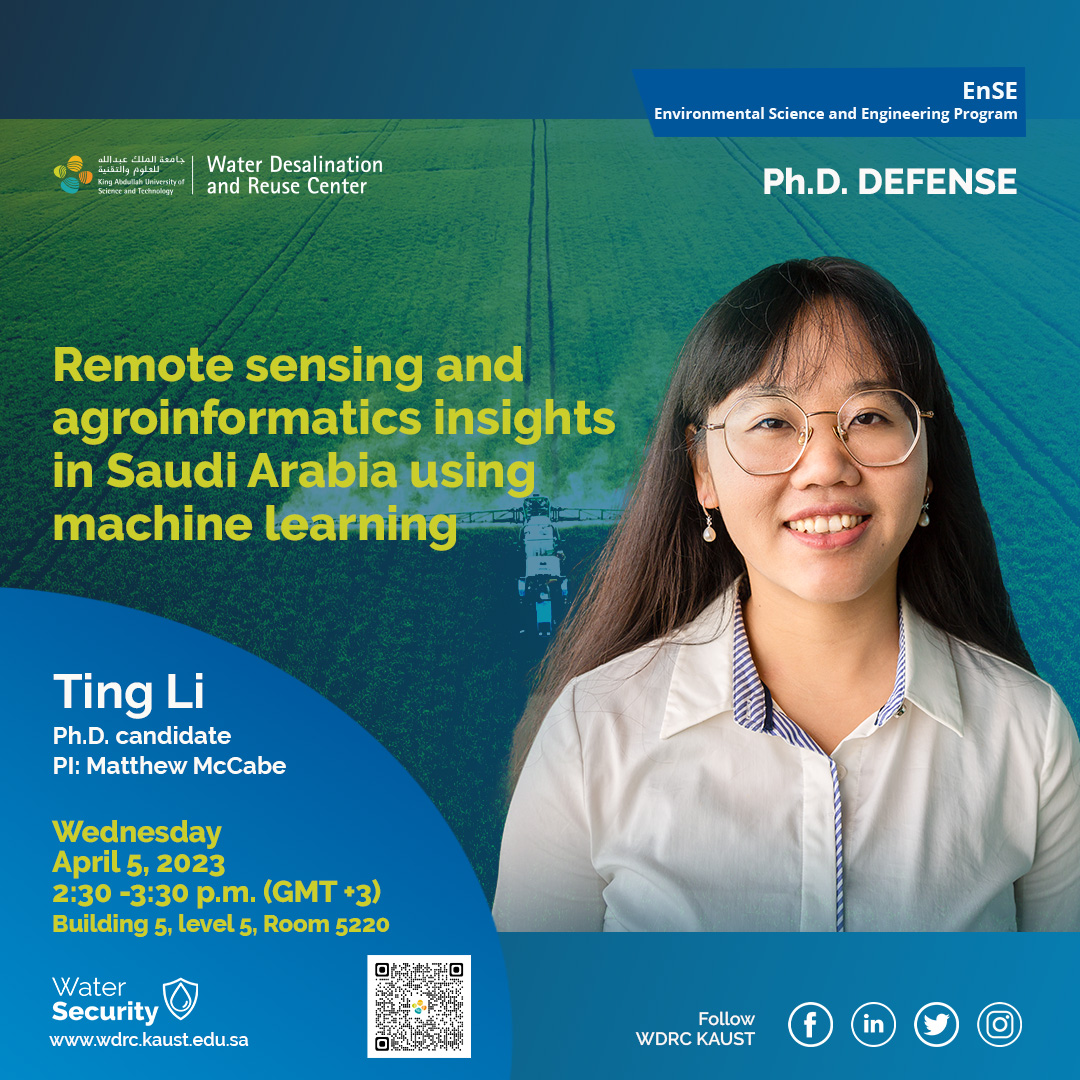



Abstract:
Agriculture plays a crucial role in ensuring global food security, but its intensification has resulted in groundwater depletion, particularly in arid regions like Saudi Arabia. Although the significance of agriculture in Saudi Arabia is well-recognized, there is limited understanding of the agroinformatics aspects required to manage them at a regional or national level. High-resolution satellite data has the potential to provide valuable insights, including the number, location, size, and crop type of agriculture fields, as well as patterns of behavior. Machine learning techniques have emerged as the state-of-the-art methods to extract agricultural informatics from satellite data due to their efficiency and accuracy. However, in regions like Saudi Arabia where even basic agroinformatics data is not routinely available, the lack of ground truth data required to drive machine learning approaches is a critical consideration in model selection. One potential solution is to create a dataset by collecting field data or interpreting satellite imagery using human interpreters, but this can be time-consuming and labor-intensive. Another option is to explore unsupervised techniques that require limited or no ground truth data, but this can result in accuracy sacrifices. Ultimately, we aim to strike a balance between usability, data availability, accuracy, and computational efficiency when developing solutions to address these issues. In this study, a hybrid machine learning framework was developed to accurately delineate agricultural fields in a regional scale of Saudi Arabia, with high accuracy and stable transferability when applied to different temporal and spatial regions across the country. The framework was used to conduct the first retrospective analysis of agriculture activity over three decades on a national scale, including changes in the number, acreage, field size distribution, and the dynamics of expansion and contraction of center-pivot fields. Additionally, a novel unsupervised framework was developed to identify within-field dynamics and map critical crop phenology stages and crop types, providing valuable information for in-field agricultural practices. The agroinformatics retrieved in this study can provide valuable insights for policymakers, farmers, and other stakeholders involved in agriculture and environmental management and exhibited significant implications for the management and sustainability of agricultural systems in Saudi Arabia and other regions facing similar challenges.